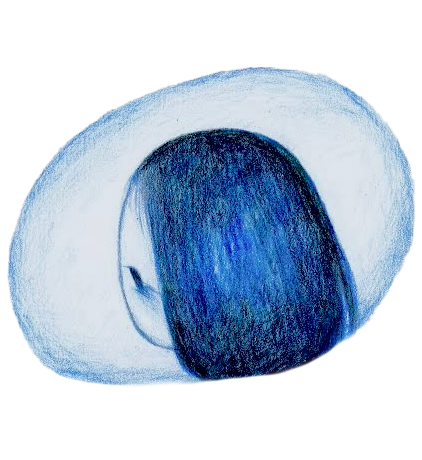Hoa Nguyen Introduction
(written to introduce poet Hoa Nguyen at a reading of the book Other Influences)
In her essay for Other Influences titled “the architecture of my lineage,” Hoa Nguyen describes intricate branches of relation between herself, other poets, and temporal and physical locations, all of which seep into the soil of her work. She wrote that, “I understood that attention can be forms of the numinous, the importance of phenomenology, the delight in naming, how everything could belong in poems.” I was elated by that non discriminate openness. It felt like an invitation. What of myself could live in that gap? When I began to read Hoa’s other work, the gap widened. Like bleeding wounds, her poems were full of holes. Hoa uses jagged line breaks that leave words spliced into two, and bleeding at the cut. Or she leaves a word alone, on the cliff of its line, sliding towards the edge. These halting fragments are best heard aloud, making the poem constructive of something dimensional, spatial, my own voice echoing back to me in my bedroom, telling me where I live in relation to its shadowy forms. She writes in her essay that “The poet can be immersed in the condition of personal experience.” This is what her ruptures feel like. They are jumping off points, divorcing her work from the concretized nature of a mythic past and propelling it into that past's meaning in its present moment, in all its imperfect breaks, in all of its myriad runnings on. It’s a poetry of spontaneous noticings, untethered, vibrational, then still. Its a poetry that moves your own breath to chase the breath of the line, lays your own hand on your cheek, and moves your own cold sky into your window.
Mia You Introduction
(written to introduce poet Mia You at a reading of her book Festival)
I heard Mia You read from their new book festival last Friday at the Asian American Writer’s Workshop in midtown. They read their work alongside fellow poets Stine An (안수연) and Jimin Seo, and I felt the shimmering thrill of listening into their particular stories in the shared landscape of a Korean experience that I too was related within. To me, the structure of Festival was like that night, a patchwork of different colored forms. In Festival, conversational anecdotes, history lessons, analysis of other people’s poems, to-do lists, science fictions, all live side by side, and sometimes that material thins out into delicately spinning hairs, like in the last lines of Musette in D minor, “The plan says you read out the names on tombstones, I breathe your letters before sleeping.
There is
a street,
which is just
a street.”
In Festival, language too is forced to live in side by sides. English, Korean, Dutch, and back again, bending the lines between them, the parts I can’t read meaning as much to me as the parts I can. A mirror of my lineage, Hangul and english are two halves eating away at each other on the page, and invite me into that void, like the end of Gangnam beauty were Mia wrote
“Now we jump
into that white abyss—”
I used to want to buy my mom a house, But what’s the point when Mia You has already written a home for my umma, whose name is jee-yun, in this book festival.
It is through the sewing of a fraying patchwork that Mia You manages to make a home for experiences that usually fall through the holes of more concrete structures.
In “Sparkling Heart of Empire” Mia You makes a home inside the gap in your consciousness that’s created when over and over you encounter one word in myriad “incorrect” uses. In “Trench Lyric” Mia You makes a home between rhythmic, news excerpts about people who besides all being labeled as women are connected by a shared experience of pain. In “The Love Song of my Hologram,” Mia You makes a home within the displacement of the laboriously constructed feminine “self,” a separation Jee-yun also described, in a song she wrote in her twenties, where she sang, “she's the only one that tells me but if I believe her I get frozen in the mirror.”
I also live inside these poems. It’s not just a Korean thing, or a woman thing. Mia You has written about these identities, technically, but not in the way I often see, where the thing’s silhouette is drawn densely, a dark profile, without ever getting to the middle, which has no shape at all. Mia You reached inside the very middle, through my mom’s black haired head and through her freckled skin and inside of that, through my own brown haired head and inside that, inside all that, a small, tightly closed hatchet was opened. I trembled, and looked away from the pdf page momentarily. I didn’t know anyone else knew about my festival.
Mia You made a home for me inside our festival.
